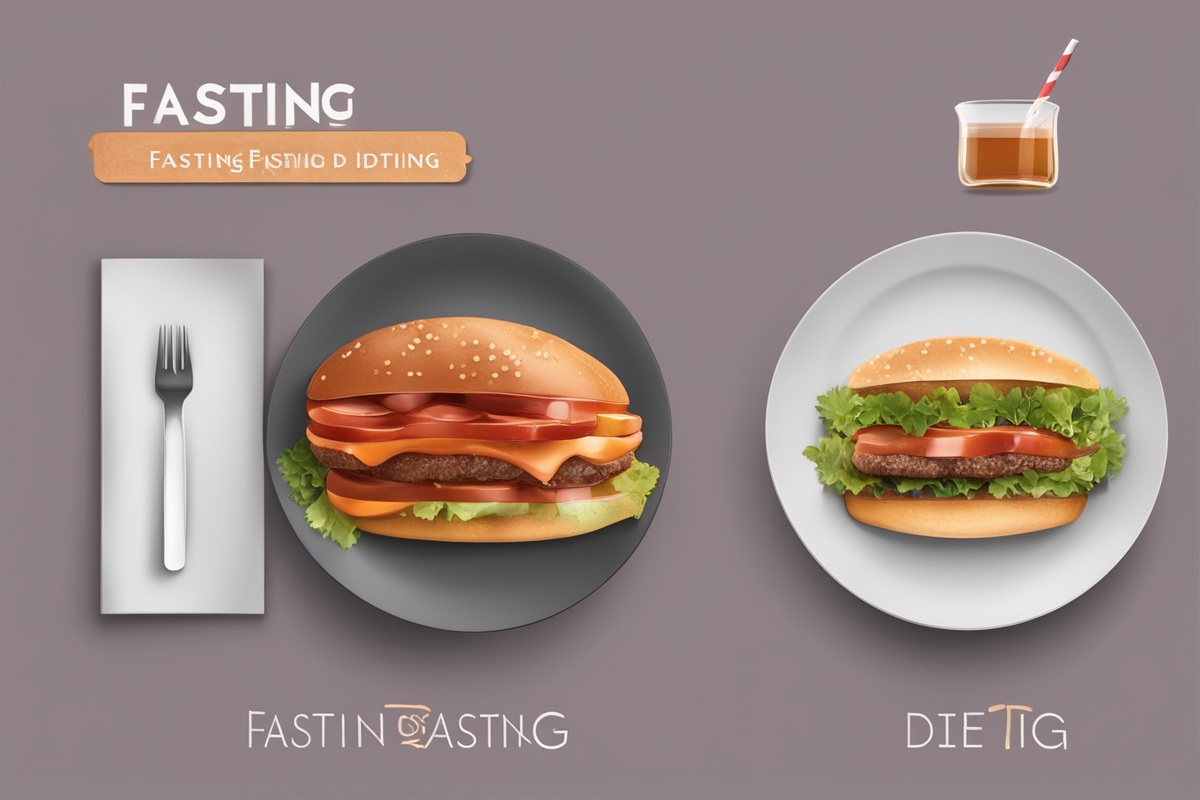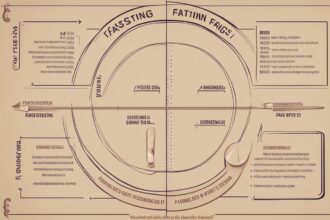When it comes to achieving health and weight loss goals, two popular approaches often come into the spotlight: fasting and dieting. Among the various fasting methods, intermittent fasting (IF) has gained significant attention for its potential benefits. In this post, we’ll dive deep into comparing intermittent fasting benefits with traditional dieting methods to help you decide which approach might work best for you. By exploring the science, practicality, and long-term effects, we aim to provide a comprehensive guide to understanding how intermittent fasting stands out.
What Is Intermittent Fasting and How Does It Differ from Dieting?
Intermittent fasting is not a diet in the traditional sense but rather an eating pattern that cycles between periods of eating and fasting. Common methods include the 16/8 method (fasting for 16 hours and eating during an 8-hour window) and the 5:2 method (eating normally for five days and restricting calories on two non-consecutive days). On the other hand, dieting typically involves specific food restrictions or calorie counting to achieve weight loss or health goals.
While dieting focuses on what you eat, intermittent fasting emphasizes when you eat. This fundamental difference shapes the benefits and challenges of each approach. For instance, IF doesn’t require you to eliminate food groups, making it potentially easier to follow for some. When comparing intermittent fasting benefits, its flexibility often stands out as a key advantage over rigid diet plans.
Key Health Benefits of Intermittent Fasting
One of the primary reasons people turn to intermittent fasting is its wide range of health benefits. Studies suggest that IF can support weight loss by reducing calorie intake and boosting metabolism through improved insulin sensitivity. Additionally, fasting periods allow the body to enter a state of ketosis, where it burns fat for fuel instead of glucose.
Beyond weight loss, comparing intermittent fasting benefits reveals improvements in heart health, reduced inflammation, and enhanced brain function. Research indicates that IF may lower blood pressure, improve cholesterol levels, and even promote cellular repair processes like autophagy. These benefits position IF as a holistic approach to wellness, unlike many diets that focus solely on calorie restriction. For more on fasting’s impact on metabolism, check out our post on How Fasting Affects Metabolism.
Intermittent Fasting vs. Traditional Dieting: Weight Loss Effectiveness
When comparing intermittent fasting benefits to traditional dieting for weight loss, both approaches can be effective, but their mechanisms differ. Intermittent fasting often leads to reduced calorie intake naturally, as the eating window is limited, making overeating less likely. Studies have shown that IF can result in a 3-8% weight loss over 3-24 weeks, comparable to many calorie-restrictive diets.
However, traditional diets like low-carb or low-fat plans may offer more structured guidance on food choices, which can be helpful for those who struggle with portion control. The downside is that diets often lead to feelings of deprivation, increasing the risk of binge eating. In contrast, IF’s focus on timing rather than food type can feel less restrictive. To explore more weight loss strategies, read our guide on Top Fasting Tips for Weight Loss.
Sustainability and Lifestyle Fit: Which Is Easier to Maintain?
Sustainability is a critical factor when comparing intermittent fasting benefits with dieting. Many traditional diets fail because they are hard to stick to long-term—think of the strict rules of keto or the monotony of meal replacement plans. Intermittent fasting, however, offers adaptability. You can adjust fasting windows to fit your schedule, whether you’re a busy professional or a parent with erratic meal times.
That said, IF isn’t without challenges. Some people experience hunger, irritability, or fatigue during fasting periods, especially in the beginning. The key to success with IF is finding a rhythm that works for you. Unlike diets that often require constant tracking, IF can become second nature once your body adjusts. Curious about integrating fasting into your routine? See our article on Creating a Sustainable Fasting Schedule.
Potential Risks and Downsides to Consider
While comparing intermittent fasting benefits paints a promising picture, it’s important to acknowledge potential risks. IF may not be suitable for everyone, particularly those with medical conditions like diabetes or eating disorders. Fasting can sometimes lead to overeating during eating windows if not approached mindfully, negating its benefits.
Traditional dieting also has drawbacks, such as nutrient deficiencies if food groups are overly restricted. Both methods require careful planning to ensure nutritional needs are met. For individuals new to fasting, starting slowly and consulting a healthcare provider is advisable. Learn more about avoiding common pitfalls in our post on Common Fasting Mistakes to Avoid.
Who Should Choose Intermittent Fasting Over Dieting?
Deciding between intermittent fasting and dieting depends on your goals, lifestyle, and health status. IF may be ideal for those who dislike constant food tracking or feel overwhelmed by dietary rules. Its benefits, such as improved metabolic health and simplicity, make it appealing for long-term adherence. On the other hand, traditional dieting might suit individuals who prefer structured meal plans or need specific dietary adjustments for medical reasons.
When comparing intermittent fasting benefits, it’s clear that it offers a unique approach to wellness that prioritizes timing over restriction. However, personal experimentation is key—some may thrive on IF, while others find success with a balanced diet. For additional insights on personalized nutrition, explore our piece on Tailoring Diet Plans to Your Needs.
Disclaimer: The information provided in this article is for educational purposes only and should not be considered medical advice. Always consult with a healthcare professional or registered dietitian before starting any new fasting or dieting regimen, especially if you have pre-existing health conditions or are pregnant or breastfeeding. Individual results may vary, and what works for one person may not work for another.
References
- Harvard Health Publishing – Intermittent Fasting: Surprising Update
- New England Journal of Medicine – Effects of Intermittent Fasting on Health, Aging, and Disease
- Mayo Clinic – Intermittent Fasting: What You Need to Know
- NCBI – Intermittent Fasting and Weight Loss: Systematic Review
- WebMD – Intermittent Fasting Overview and Benefits
This content is for informational purposes only and not a substitute for professional advice.






